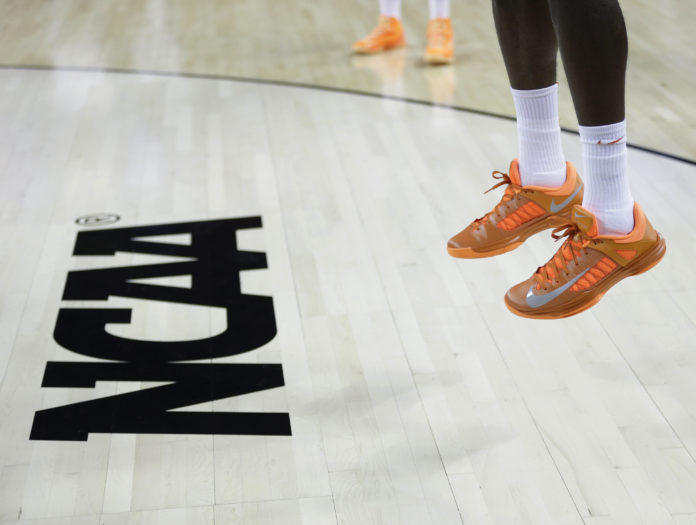
By Jessika Harkay | Sports Writer
When I first heard about college athletes wanting to be paid on top of a full-ride scholarship, I had to laugh.
Looking at Baylor alone, with tuition, housing and student charges, the full attendance price is just shy of $62,000. Then multiply that by four. Let’s keep in mind, according to the US Census Bureau, the average American household has an income of $63,000.
It simply seemed like greed, and I was entirely against the idea of paying college athletes. Until I began researching for this editorial.
Business Insider made a video researching NCAA’s revenue, and the organization brought in over $1 billion during 2016-17. Of the 10 most profitable schools, each university averaged revenue of over $130 million more than the schools spent on athletic-scholarships.
The NCAA Division I handbook states in Article II.9, that student-athletes “should be motivated primarily by education and by the physical, mental and social benefits to be derived. Student participation in intercollegiate athletics is an avocation, and student-athletes should be protected from exploitation by professional and commercial enterprises.”
Not only does the handbook talk about sports essentially being an extracurricular, but in 2015, the NCAA’s former executive of vice president of regulatory affairs explained in a speech that paying players would be a mistake, creating “campus employer-employee relationships,” and that students had to emphasize education.
Aside from the fact that the argument of “employer-employee relationships” between students and faculty doesn’t make much sense, considering work-study and how many of us have these relationships on campus — Time makes a good point too stating, “roughly 14 million of 20 million U.S. undergraduates have jobs outside the classroom and no one thinks to regulate or confiscate those earnings.”
The overall idea of a free education in return for playing a sport sounds great – if it was executed as on paper. The statement and handbook raise a few questions.
How can a college sport be an avocation considering the amount of time in practice, games, traveling and team meetings? There’s no way to consider collegiate sports a part-time gig or side activity.
And on top of that, to what degree are student-athletes truly receiving and being motivated by an education?
In 2014, CNN reported a story about the University of North Carolina getting stuck in the middle of an 18-year academic fraud scandal, where the university created fake classes to boost student-athlete’s GPAs.
Aside from the moral dilemma here to keep athlete’s eligible, it’s important to acknowledge that these students weren’t obtaining the education that’s supposed to legally compensate for their time on the courts or fields.
Looking at 2015, CBS Sports surveyed over 400 Pac-12 student athletes and some of the results were not shocking. For example, 80% of the athletes said they’ve missed class for a sporting event and 66% said it impacted their social lives.
It began to get interesting when over half of the athletes said they didn’t have enough time to study for tests and 73% described feeling obligated to go to voluntary events, reporting some coaches “threatening to kick athletes off the team for voluntary events,” the article said.
It took me having to sit back and realize, that sounds about right.
I think back to speaking to a few players and hearing they spent the summer’s practicing, or have to be awake at the crack of dawn and I can’t blame them for being exhausted.
If I’m tired after a six hour school day, I couldn’t imagine spending three hours doing drills or team events, then having to go back home and study for a Spanish test.
Finding a balance between school and work or extracurriculars is hard to begin with, but I couldn’t imagine having to emphasize choosing something as a priority over my education. Especially when the sole “payment,” behind hours of work and time is something I’m not even utilizing to my full benefit.
California governor Gavin Newsom is taking the first step in compensating student-athletes for the work they put in. And I think it’s time for others to follow.





